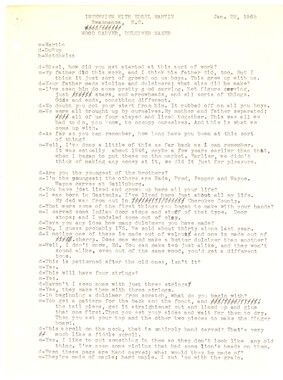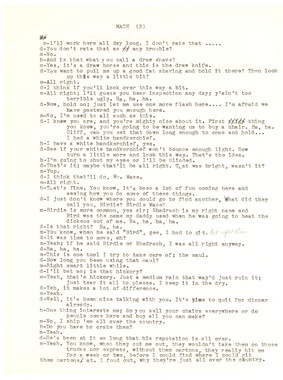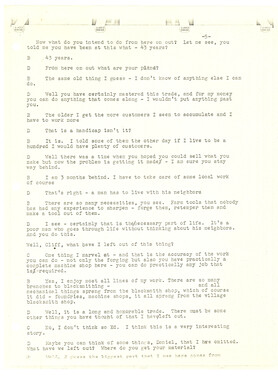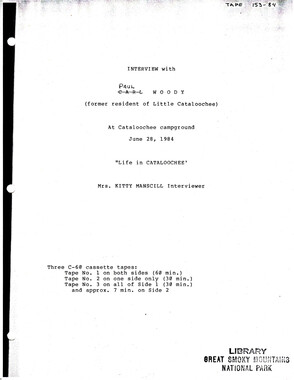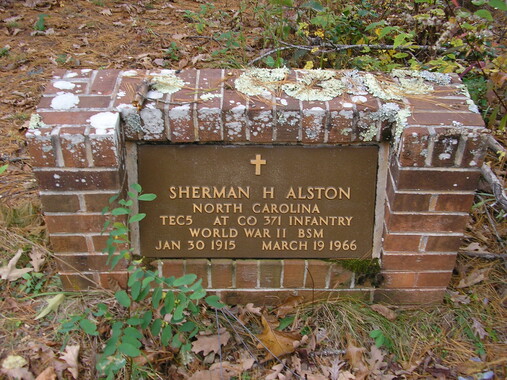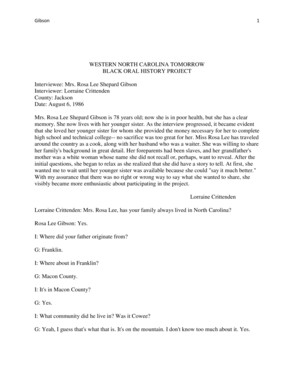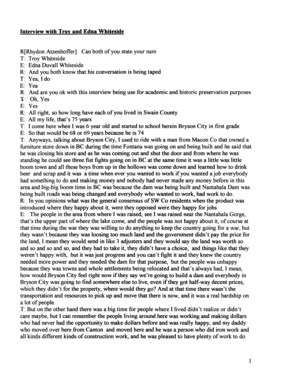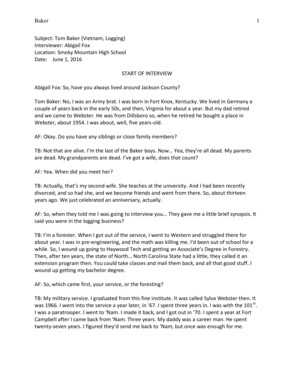Western Carolina University (21)
View all
- Canton Champion Fibre Company (2308)
- Cherokee Traditions (291)
- Civil War in Southern Appalachia (165)
- Craft Revival (1942)
- George Masa Collection (137)
- Great Smoky Mountains - A Park for America (3182)
- Highlights from Western Carolina University (422)
- Horace Kephart (998)
- Journeys Through Jackson (159)
- LGBTQIA+ Archive of Jackson County (90)
- Oral Histories of Western North Carolina (318)
- Picturing Appalachia (6617)
- Stories of Mountain Folk (413)
- Travel Western North Carolina (153)
- Western Carolina University Fine Art Museum Vitreograph Collection (129)
- Western Carolina University Herbarium (92)
- Western Carolina University: Making Memories (738)
- Western Carolina University Publications (2491)
- Western Carolina University Restricted Electronic Theses and Dissertations (146)
- Western North Carolina Regional Maps (71)
- World War II in Southern Appalachia (131)
University of North Carolina Asheville (6)
View all
- Allanstand Cottage Industries (62)
- Appalachian National Park Association (53)
- Bennett, Kelly, 1890-1974 (1463)
- Berry, Walter (76)
- Brasstown Carvers (40)
- Carver, George Washington, 1864?-1943 (26)
- Cathey, Joseph, 1803-1874 (1)
- Champion Fibre Company (233)
- Champion Paper and Fibre Company (297)
- Cherokee Indian Fair Association (16)
- Cherokee Language Program (22)
- Crowe, Amanda (40)
- Edmonston, Thomas Benton, 1842-1907 (7)
- Ensley, A. L. (Abraham Lincoln), 1865-1948 (275)
- Fromer, Irving Rhodes, 1913-1994 (70)
- George Butz (BFS 1907) (46)
- Goodrich, Frances Louisa (120)
- Grant, George Alexander, 1891-1964 (96)
- Heard, Marian Gladys (60)
- Kephart, Calvin, 1883-1969 (15)
- Kephart, Horace, 1862-1931 (313)
- Kephart, Laura, 1862-1954 (91)
- Laney, Gideon Thomas, 1889-1976 (439)
- Masa, George, 1881-1933 (61)
- McElhinney, William Julian, 1896-1953 (44)
- Niggli, Josephina, 1910-1983 (10)
- North Carolina Park Commission (105)
- Osborne, Kezia Stradley (9)
- Owens, Samuel Robert, 1918-1995 (11)
- Penland Weavers and Potters (36)
- Roberts, Vivienne (15)
- Roth, Albert, 1890-1974 (142)
- Schenck, Carl Alwin, 1868-1955 (1)
- Sherrill's Photography Studio (2565)
- Southern Highland Handicraft Guild (127)
- Southern Highlanders, Inc. (71)
- Stalcup, Jesse Bryson (46)
- Stearns, I. K. (213)
- Thompson, James Edward, 1880-1976 (226)
- United States. Indian Arts and Crafts Board (130)
- USFS (683)
- Vance, Zebulon Baird, 1830-1894 (1)
- Weaver, Zebulon, 1872-1948 (58)
- Western Carolina College (230)
- Western Carolina Teachers College (282)
- Western Carolina University (2008)
- Western Carolina University. Mountain Heritage Center (18)
- Whitman, Walt, 1819-1892 (10)
- Wilburn, Hiram Coleman, 1880-1967 (73)
- Williams, Isadora (3)
- Cain, Doreyl Ammons (0)
- Crittenden, Lorraine (0)
- Rhodes, Judy (0)
- Smith, Edward Clark (0)
- Appalachian Region, Southern (3032)
- Asheville (N.C.) (1945)
- Avery County (N.C.) (26)
- Blount County (Tenn.) (200)
- Buncombe County (N.C.) (1680)
- Cherokee County (N.C.) (283)
- Clay County (N.C.) (556)
- Graham County (N.C.) (247)
- Great Smoky Mountains National Park (N.C. and Tenn.) (535)
- Haywood County (N.C.) (3573)
- Henderson County (N.C.) (70)
- Jackson County (N.C.) (4926)
- Knox County (Tenn.) (61)
- Knoxville (Tenn.) (21)
- Lake Santeetlah (N.C.) (14)
- Macon County (N.C.) (421)
- Madison County (N.C.) (216)
- McDowell County (N.C.) (39)
- Mitchell County (N.C.) (135)
- Polk County (N.C.) (35)
- Qualla Boundary (982)
- Rutherford County (N.C.) (78)
- Swain County (N.C.) (2187)
- Transylvania County (N.C.) (270)
- Watauga County (N.C.) (12)
- Waynesville (N.C.) (86)
- Yancey County (N.C.) (72)
- Aerial Photographs (3)
- Aerial Views (60)
- Albums (books) (4)
- Articles (1)
- Artifacts (object Genre) (228)
- Bibliographies (1)
- Biography (general Genre) (2)
- Cards (information Artifacts) (38)
- Clippings (information Artifacts) (193)
- Copybooks (instructional Materials) (3)
- Crafts (art Genres) (622)
- Depictions (visual Works) (21)
- Design Drawings (1)
- Digital Moving Image Formats (2)
- Drawings (visual Works) (185)
- Envelopes (115)
- Exhibitions (events) (1)
- Facsimiles (reproductions) (1)
- Fiction (general Genre) (4)
- Financial Records (12)
- Fliers (printed Matter) (67)
- Glass Plate Negatives (381)
- Guidebooks (2)
- Internegatives (10)
- Interviews (823)
- Land Surveys (102)
- Letters (correspondence) (1070)
- Manuscripts (documents) (618)
- Maps (documents) (177)
- Memorandums (25)
- Minutes (administrative Records) (59)
- Negatives (photographs) (6192)
- Newsletters (1290)
- Newspapers (2)
- Notebooks (8)
- Occupation Currency (1)
- Paintings (visual Works) (1)
- Pen And Ink Drawings (1)
- Periodicals (194)
- Personal Narratives (10)
- Photographs (12977)
- Plans (maps) (1)
- Poetry (6)
- Portraits (4573)
- Postcards (329)
- Programs (documents) (181)
- Publications (documents) (2444)
- Questionnaires (65)
- Relief Prints (26)
- Sayings (literary Genre) (1)
- Scrapbooks (282)
- Sheet Music (2)
- Slides (photographs) (402)
- Songs (musical Compositions) (2)
- Sound Recordings (802)
- Specimens (92)
- Speeches (documents) (18)
- Tintypes (photographs) (8)
- Transcripts (329)
- Text Messages (0)
- A.L. Ensley Collection (275)
- Appalachian Industrial School Records (7)
- Appalachian National Park Association Records (336)
- Axley-Meroney Collection (2)
- Bayard Wootten Photograph Collection (20)
- Bethel Rural Community Organization Collection (7)
- Blumer Collection (5)
- C.W. Slagle Collection (20)
- Canton Area Historical Museum (2110)
- Carlos C. Campbell Collection (564)
- Cataloochee History Project (64)
- Cherokee Studies Collection (4)
- Daisy Dame Photograph Album (5)
- Daniel Boone VI Collection (1)
- Doris Ulmann Photograph Collection (112)
- Elizabeth H. Lasley Collection (1)
- Elizabeth Woolworth Szold Fleharty Collection (4)
- Frank Fry Collection (95)
- George Masa Collection (173)
- Gideon Laney Collection (452)
- Hazel Scarborough Collection (2)
- Hiram C. Wilburn Papers (28)
- Historic Photographs Collection (236)
- Horace Kephart Collection (861)
- Humbard Collection (33)
- Hunter and Weaver Families Collection (1)
- I. D. Blumenthal Collection (4)
- Isadora Williams Collection (4)
- Jesse Bryson Stalcup Collection (47)
- Jim Thompson Collection (224)
- John B. Battle Collection (7)
- John C. Campbell Folk School Records (80)
- John Parris Collection (6)
- Judaculla Rock project (2)
- Kelly Bennett Collection (1482)
- Love Family Papers (11)
- Major Wiley Parris Civil War Letters (3)
- Map Collection (12)
- McFee-Misemer Civil War Letters (34)
- Mountain Heritage Center Collection (4)
- Norburn - Robertson - Thomson Families Collection (44)
- Pauline Hood Collection (7)
- Pre-Guild Collection (2)
- Qualla Arts and Crafts Mutual Collection (12)
- R.A. Romanes Collection (681)
- Rosser H. Taylor Collection (1)
- Samuel Robert Owens Collection (94)
- Sara Madison Collection (144)
- Sherrill Studio Photo Collection (2558)
- Smoky Mountains Hiking Club Collection (616)
- Stories of Mountain Folk - Radio Programs (374)
- The Reporter, Western Carolina University (510)
- Venoy and Elizabeth Reed Collection (16)
- WCU Gender and Sexuality Oral History Project (36)
- WCU Mountain Heritage Center Oral Histories (25)
- WCU Oral History Collection - Mountain People, Mountain Lives (71)
- WCU Students Newspapers Collection (1923)
- Western North Carolina Tomorrow Black Oral History Project (69)
- William Williams Stringfield Collection (2)
- Zebulon Weaver Collection (109)
- African Americans (390)
- Appalachian Trail (35)
- Artisans (521)
- Cherokee art (84)
- Cherokee artists -- North Carolina (10)
- Cherokee language (21)
- Cherokee pottery (101)
- Cherokee women (208)
- Church buildings (190)
- Civilian Conservation Corps (U.S.) (114)
- College student newspapers and periodicals (2012)
- Dams (115)
- Dance (1023)
- Education (222)
- Floods (63)
- Folk music (1015)
- Forced removal, 1813-1903 (2)
- Forest conservation (220)
- Forests and forestry (1198)
- Gender nonconformity (4)
- Great Smoky Mountains National Park (N.C. and Tenn.) (181)
- Hunting (47)
- Landscape photography (25)
- Logging (122)
- Maps (83)
- Mines and mineral resources (9)
- North Carolina -- Maps (18)
- Paper industry (38)
- Postcards (255)
- Pottery (135)
- Railroad trains (72)
- Rural electrification -- North Carolina, Western (3)
- School integration -- Southern States (2)
- Segregation -- North Carolina, Western (5)
- Slavery (5)
- Sports (452)
- Storytelling (243)
- Waterfalls -- Great Smoky Mountains (N.C. and Tenn.) (66)
- Weaving -- Appalachian Region, Southern (280)
- Wood-carving -- Appalachian Region, Southern (328)
- World War, 1939-1945 (174)
Interview with Reverend Charles Lee
Item
Item’s are ‘child’ level descriptions to ‘parent’ objects, (e.g. one page of a whole book).
-
-
Lee 1 Subject: Reverend Charles Lee Interviewer: Conor Miller Location: Liberty Baptist Church, Sylva, NC Date: June 1, 2016 START OF INTERVIEW Conor Miller: I’m going to start with some basic information, background. Can you please state your name, birthdate, and birth place? Reverend Charles Lee: Sure. My name’s Charles Lee. Date of birth is 7/5/63. I was born in Asheville, North Carolina. CM: Okay. Is that where you grew up, in Asheville? RCL: Grew up in Asheville, yes. And then, went in the military, came back and I went to UNCA, and I’ve been in Asheville ever since. CM: Okay. I understand you were the tenth child of your family? RCL: Yes, tenth of eleven children. CM: So, how was it living in such a large family? RCL: Well, to me, it was… I, it was unique in that we did everything together as a unit here. So… basically, for the first, I would say, ten years of my life it was more family oriented, everything was family oriented. It wasn’t until maybe I got in the sixth grade where we started venturing out and then doing other things with community members here. CM: Mm hmm. So, it was, you know, there was any struggles that came along with, you know, being such a large family? Or it was just, you know, kind of a part of your life. RCL: I think it was just a part of my life here. I mean, you know, we basically had chores, and responsibilities, and homework, and some of the older sibling were given responsibility of making sure some of the younger ones completed their tasks here, but there were no real power struggles or anything here. CM: Yeah. RCL: Basically, girls sort of did their own thing, and the guys hung with the guys, you know? CM: Yeah. Do your parents James and Mary Francis Lee, were… did they always live in Asheville, or did they relocate to Asheville after some time? RCL: They actually relocated here. They were from… My parents met in Anderson, South Carolina. My father was from McCormick, South Carolina and he moved to Anderson, and that’s Lee 2 where my mom was, here. And they dealt with a lot of the oppression during that day, here, and they moved to Asheville hoping for a better living. CM: Did they find that better living here in Asheville? RCL: Somewhat, I mean, it was… On one hand, they said it was better than some of the racial prejudice they found in South Carolina, but on the other hand families were not as close-knit here, and they tried to keep us real close-knit together. CM: Yeah. So, any other family outside of your immediate family here, in North Carolina? Like cousins or… in this area? RCL: No, we don’t have any in this area. No. CM: So, are they all still in South Carolina? RCL: Most of them in South Carolina. We’ve got some distant cousins that are scattered around, you know, but yeah. CM: What kind of jobs did you have previously, in your younger years? RCL: In high school actually, I did a part-time job in high school. Worked for the hospital. Then actually, I went in the service here, and I worked in the Post Office for two years. Came back and went to UNCA, and while I was at UNCA, started working with the Parks and Recreation and they hired me on full-time, and that’s where I retired from. CM: That’s awesome. So, you had an interest in the medical field, or was it just a job that you acquired? RCL: It was just a job. It was something that’s, when I was sixteen, no, it was just a job. Yeah. CM: Okay. What did you do for entertainment around here, and in Asheville and stuff? RCL: Currently, now Asheville, they have a lot of outdoor entertainment, you know, a lot of festivals and things of that nature here. A lot of times I’ll go sometimes to Greenville and go to plays and things of that nature here. But other than that, I’m an avid reader, I love to jog here, I love exercise. I do a lot of that for entertainment. CM: That’s nice. What about your younger years, like living in Asheville? RCL: Younger years? Basically, I went to school, and I was in the [Bigger] club. We did some other activities, but mainly it was school, and school parties, and dances that was it. CM: Yeah, that’s good. So, I kind of already covered this, but how was Asheville when you were growing up compared to like, what it is today? Lee 3 RCL: Hmm. I think it’s changed quite a bit today. I think it was more of a safe and secure environment when we were growing up. Even though I grew up, like I say, my formative years just with the family, but even once I grew outside of the family it was more of a nurturing environment here. You didn’t hear about any of the shootings and violence. It never escalated to the level that it is now here. At most, people have disagreement and there might be a little pushing and shoving, and a few punches, but that was it here. And nowadays you hear about people getting shot and stabbed and it’s just a regular occurrence. Almost so to the fact that we’re… folks have become desensitized when you hear about it. CM: Yeah, we’re just kind of just, push it aside. RCL: Just another one. CM: It’s just another one of those, you know. RCL: Yeah. CM: Any difficulties growing up? You just said that there wasn’t really any. You just kind of went to school and worked and everything? RCL: No, I had no difficulties, you know. Just the expectation was that you go to school, you do your work, you perform at your best level, you know. No, no difficulties. CM: Alright. So, you went to Asheville High and graduated in ’81? RCL: Yes. CM: Alright. Why did you join the Army in ’82? RCL: I joined the Army because initially, I had been accepted to Johnson City Smith University here. I was real excited about it. All my friends were going to different colleges here, and we got… received a letter at my house that the housing, somehow or another they had an explosion of students here, so they were going to house me off-campus here. They were going to still provide bus transportation and pass and all that here, but my mom was concerned about, you know, “You’re young, and being off-campus and you don’t know what’s going on.” And so she said, just wait until next semester. And we agreed to wait until next semester, but when all my friends left it was almost like, just traumatizing for me, you know, because we didn’t hang a lot with underclassmen so, it was like I was totally isolated. And then, you know, I just decided, I said, “I got to do something here.” And I just went and talked to the recruiter, and shocked my mom here, and joined the military. CM: So, you stayed in the Army until ’84? RCL: Yes. Lee 4 CM: Alright. And you said you went to the University of North Carolina Asheville after the Army? RCL: Yes. CM: Okay. What did you study when you were there? RCL: Business management. CM: Okay. Was there someone or something that influenced you to go to Fruitland Bible College and then Liberty Baptist Bible College? RCL: Well, what influenced me was that I think, even when I was younger, when I was at UNC, I knew that I had an inclination to go into the ministry, but my desire was to be in the business world, and so I was wrestling the two issues. And then, when I really felt I, felt like the call of God, or whatever, you know, I’d already gone to UNCA, so I said, “I need to pursue a better understanding of the bible, try to get a little history on Old Testament.” So I pursued those avenues. CM: How was that college experience? RCL: It was excellent. It was an excellent experience here. Somehow I wish I had done it when I was much younger, I’d have taken advantage of it here. I think that at that time, when I went back here, I was bi-vocational, I was pastoring here at Liberty Baptist Church, I was working full time for the city, had two girls, and so I was shuffling quite a bit here, and I think my retention level was not quite as high as it would’ve been had I been much younger, you know? CM: Right. Did you think that your college experiences prepared you for what you do now and everything? And you know, was a good preparation for being a reverend and stuff like that? RCL: Absolutely. I think it was excellent. I think one of the things that the university did, and what it did for me was it allowed you to look at a problem or situation from different viewpoints and different angles here. CM: Mm hmm. RCL: And a lot of times people sort of approach it with all of their experience, and wisdom, and expertise, and they don’t have the expertise to look outside of themselves and say that there may be different ways to approach a problem here. And I think that the university really shaped and equipped us of how to look at a situation and really approach it from different angles. CM: Okay. So, Liberty Baptist Church, you’re the reverend here since 2004? RCL: Yes. CM: Alright. How did you become the reverend here? Lee 5 RCL: Well, I started preaching in Asheville here, and then with the Baptist churches here, when there’s a vacancy here, they normally go out to the Baptists and inform them and whatever, and then let them know that we got a pulpit vacancy here. And so I was contacted and asked if I was interested in preaching. I preached here off and on for about a year here, and then they went through the selection process, and they asked me if I was interested. And after prayer and consideration, and talking with my family here, we said, “Yes, we are interested here.” And then, after the process went on, I guess I was selected. CM: So now you currently live here, in Sylva? RCL: No, actually I still live in Asheville here. I commute here. Normally come here Wednesdays and then on the weekends. Lots of weekends like this coming weekend, we’ll have activities on Saturday and Sunday here. Just depending on the time of the year, you know, when it’s warmer weather we have a lot more activities. CM: Yeah. Have you always wanted to be a reverend? You said you kind of knew always from when you were younger that you wanted to do something pursuing the ministry. RCL: Well, when I was in college I knew that here. Now, when I was much younger I probably never thought about it. I was more of an introvert here, I was more, even in school I liked staying to myself. I liked reading. I was more thought provoking then instead of external, you know? CM: Mm hmm. RCL: But I did have some teachers in school, especially in high school, who pushed me into things where I would have to do some public speaking and all. And I didn’t know that the Lord was preparing me. It wasn’t until I really went into the Army where they made you get our front and lead troops, and push to where I think a lot of that came out. And then, when I came back I felt the call of God, and then… But I still wrestled with it. I still was like, “Well, I really want to do my own thing,” and you know, that was really the struggle, that internal struggle that I was living with here. But I do think that a lot of training prepared me for the moment, even at the point where I wasn’t realizing that people were placed in my life to help guide me in that direction. CM: Let’s see. So, any people in your life that really helped you decide that you wanted to be a reverend, or was it just kind of like a self-realization? RCL: Well, I think it was a self-realization, but there were a couple of people in particular here. One guy by the name of Edward Burton, he was my… He was a Sunday school teacher when I was a young boy. He was chairman of the deacon board, and even during the years to where I got old enough and sort of wandered away and did my own thing and came back here, he was sort of a central force and a figure here. Some of those years where I basically went out and did my own thing and sort of strayed totally from the teachings of the church here, and a lot of… During that period I think I lost a lot of self-confidence, you know. Things that you thought that you’d never do and engage in, you found yourself engaging in those activities, you know. Lee 6 CM: Mm hmm. RCL: And I didn’t have a lot of assurance in myself, and so, to me he was a factor when I came back that said that, “Yep, you can’t keep yourself, but there’s a God who can hold and keep you here.” And so, he was a central force in helping mold and shaping me. CM: Was your family very religious? As you were being raised and stuff? RCL: Oh, absolutely. They were real religious, Mom and Dad, yes. Every night we all had prayer together, we all had family dinners, and even at the family dinner table everybody would go around and you’d have to quote a verse of scripture here. Everybody would quote a verse of scripture. And then in the evening when we said prayers, at the end of my mom and my dad leading us in a corporate prayer, one of the siblings, each night it was a different sibling’s night here, but then we would have to quote the Lord’s Prayer here. And so yeah, they were real religious. Everything was basically structured around, even when they were not talking about the bible, they were structured around your behaviors, you know, conducive to what would be pleasing in the Lord’s sight. CM: Have any of your siblings gone on a similar pathway as you, or…? RCL: Most all of my siblings are in church. None of them are pastor or anything, but all of them are, you know, they’re in church, they’re active. Some are serving on different boards and axillaries and choir members, but none of them are pastor. CM: Okay. None of them are around here, are they? RCL: No, most of them are not around here. We’ve got some that are in Asheville here, none are in the Sylva area here. But I’ve got a sibling in… One’s moved to D.C., one’s in Fayetteville. They’re sort of scattered, you know. You grow up and split up, you know. CM: Yeah. I know that you’re involved in many other churches, like the Saint Paul Missionary Baptist Church, and the Asheville, and Mud Creek Missionary Baptist Association. RCL: Mm hmm. CM: Can you tell me a little bit about those? RCL: Yeah. Since I live in Asheville, a lot of activities that occur in Asheville, as far as… They do missions with Habitat, try to help build houses, Baptist Minister Union, they do quite a… We have a monthly meeting there. We’ve got a lot of different programs and organizations going on there. They try to empower, educate, and assist individuals here. And so, I really feel that even though I’m pastor here in Sylva that I still need to be connected to the community in which I live. People need to see that I’m active, that I’m living out my faith. I’m not just disappearing and they don’t never see me, and I’m just in and out of my house here. And so, a lot of the activities that the Mud Creek does as far as educational activities for youth, or empowerment activities, I try to be involved and assist in those activities. Lee 7 CM: Mm hmm. Let’s see. How long have you been working with Each One? RCL: Each One Reach One? CM: Yeah. RCL: I worked with them for about six years. I’m not working with them currently now, but one of the major things they did was an after school program where they try to empower youth and assist them. They try to do some mentorships where they would get males to assist and mentor another male, and then they would run a summer basketball league here. And so I coached and tried to get males involved, and tried to actually be role models and mentors to kids who didn’t have a father figure in their lives. CM: How was that being a coach for those leagues? Was that a fun experience for you, or …? RCL: It was real fun. It was really challenging and demanding as well, because a lot of these kids don’t have that father figure. A lot of them don’t have…they’ve not had boundaries in their life so when they get upset here, they go beyond the boundaries, and it takes a lot to try to talk with them, and to try and hopefully set some boundaries and reinforce them, but not be too rigid on them because they come from an unstructured environment here. And so, it was a real challenge for us, and I think the biggest challenge was that, you know, you’re trying to love them in an environment that’s safe, but trying to at least set some realistic goals for each child here. And so, I think that on one hand it was real rewarding. On the other hand it was just really devastating when, even when we won tournaments and they had no one there to share it with except the coach, you know. I mean it’s like anything else, you know? When you have a big moment in your life you expect your loved ones to be there to embrace you, you know? I’ll never forget one situation in particular. We had this guy by the name of Dre here, and he had hit the winning shot. We won the championship, and we were all excited and all that, and, you know. Then we had the afterward’s party, “Did you tell your mom? Did she…” you know, and he’s like, “Ah, she said I was lying.” Well, your biggest moment, you’re so excited, you run home… “Ah, you’re lying.” You know? And so, it’s a mixture, you know, the highs and the low, but you know. You’re excited for them, but you know. Even though you try to mentor, they go back to that same environment. CM: Yeah. Is there a reason that you specifically chose to work with Liberty Baptist Church? Just because they reached out to you, or…? RCL: Well, I think we shared a lot. I think… We had probably about four or five meetings before we came to a mutual understanding here, but we talked about the goals and the vision that we desire for this church and for our community, and how to reach out here, and I think we came to a consensus here. I think that’s probably the biggest reason why, you know, we were able to forge a union, you know. I think that it’s real important that people understand your vision, what you think the body of Christ should be doing, and for people to be able to say, “Yes, we embrace that vision,” or “No, we feel like we should go in a different direction.” Part of that vision that we talked about was really trying to grow and nurture the indigenous people around here. We talked about the job, of course, some of that was Oconaluftee. We talked about even some of Lee 8 college kids, you know, how do we do evangelistic efforts and at least them know that while they’re away from home they’ve got a place where they can come and worship and grow. CM: So, I understand that you’re the founder and former president of the Sylva branch of the NAACP? RCL: Yes. CM: Okay. RCL: Not the founder, the former president here. I think that basically, it started up as a grass roots movement all throughout Western North Carolina after some of the oppressive legislation that was passed. In counties, even went from Yancey County, places that were, it is predominantly, or the population is, you know, predominantly white, you know. They developed NAACP chapters in all around North Carolina where some of the oppressive legislation was passed. CM: Why did you decide to… So, you did or didn’t found the branch here? RCL: I did not found the branch here, I was just part of a movement where a lot of people was interested, you know. There was enough people that were trying to get…I’ve been part of the NAACP, let me say this, probably since the eighties here. I was in the Buncombe County branch here. And so, the NAACP, they will allow you to build a branch if you live in that community or you work and labor in that community. So, when we were talking about doing a branch here we were trying to get an interest to see if there was enough individuals in there. I talked with the county, the Buncombe County one, and they said, “Yes, if they do get one you can switch your membership from Buncombe County to Jackson County here.” And so we discussed it and we had enough people that were interested in this area to start a chapter here. CM: So you were, you know, there throughout the whole beginning and the starting of the chapter here? RCL: Yes. CM: Was it hard to get it started, just you know, with everybody else, or was it just like a big following that everybody kind of, you know, wanted to start a chapter here? RCL: I think there was a lot of people who wanted to start a chapter that was sort of avoiding leadership here. The challenging part for me, the biggest challenging part was again, that I live in Asheville and we’re having a chapter here in Jackson County. And so, when we initially organized here, not only do you have the chapters, but you got all of these sub-committees here, be it from legal redress, finance committee. And so, we had committees that were meeting almost every night that they want me, the president, to be there. And so, for them, a lot of them it’s just a five minute drive to the church and we talk and go back home, but for me it’s an hour drive. And then especially if it’s a fifteen or twenty minute meeting, being an hour drive back, Lee 9 and so that initial phase was real challenging for me personally. And I think the challenge was just the proximity, not living in close proximity. CM: Yeah. Your family was supporting you throughout the…? RCL: Yes. CM: Okay. Liberty Baptist is also very involved with the NAACP in the African American community. Can you expand on that, like so…? RCL: Yes. I think that, you know, when you look at the NAACP and the initiatives as far as affordable housing, as far as, you know, feeling like voter suppression is wrong under any circumstances, as far as, you know, the environment, I think that our church embraces and we feel like the NAACP embraces a lot of the values that the bible teaches as far as looking out for the least, the left behind, those who have less here. And so, we felt like it was important for us to partner with like agencies here. We do know that there are some things that the church in and of itself cannot do here, but we still can be party and plugged in to other agencies who will foster the wellbeing of all individuals. CM: Is there anything that you would like to add in about your church, or your involvements with the NAACP, or just anything else that we’ve talked about today. RCL: No. I think that we’ve got a real inclusive church here. I think that uniquely, when I first came it was just predominantly African Americans and now we’ve got a good mixture of African Americans, Caucasians, we’ve got some Indians coming, you know. And so, I think that our church is looked at, how we do things, and we’re a lot more inclusive here. I think for me personally, one of the biggest challenges when I came was just that small town mentality, where people know each other, and they’ve always done it this way. So they assume that anybody else coming in, that they’re just going to do it the way they do it, and you know, trying to get people to look outside the box and see that there are different ways of approaching a situation. But it’s been a labor of love, and I really enjoy it. And I hope that the feeling is mutual, you know. CM: Yeah. Anything you would like to add about your service in the Army, or just anything that you learned from that, or…? RCL: I loved my time in the Army, I’m just being honest, you know. Probably would’ve… I wanted to go to school while I was in the Army, continue. I was actually in Germany at that time, in ’83, ’84. There was an uprising or something in Ukraine and they were killing some service men overseas. And my mom, she was real worried, and she was like, “No, come out. You went in to go to school. Come out, you know, go to school.” But I think that it really shaped me. I think they pushed me beyond what I probably would’ve done on my own. I was comfortable with basically doing what was ascribed for to me to be doing, what I was expected to do, but not pushing those boarders and boundaries. And I think that… In the military they basically have that everybody’s a leader regardless if you’re in the squad or whatever, something may happen and you’ve got to take over. And so, you got to be prepared. Any day, you know, you might be acting company commander, you know, and they put you in those roles and responsibilities and I Lee 10 think that it really prepared me for my life. It really prepared me, even for my work environment outside of the church, you know. Making sure that you knew what your supervisor’s job was, and you was prepared. If you ever had to step up into it, you tried to do as much as you can. You try to get a good grasp on the knowledge of what needed to be done so that once you stepped up here that you were able to perform at least at the level where you were proficient. CM: Mm hmm. So, you think that your experiences through the Army and stuff kind of shaped who you are now? RCL: Yes, absolutely for sure. CM: Would you like to expand on your experiences in Germany? RCL: Well, in Germany I think that probably the biggest shock for me in Germany was just the cultural shock, you know what I mean? Coming from America, the meals, the conversations, you know, going into another part of the world where… All of the younger people spoke English, but some of the older ones didn’t, here. So when you going to Germany they taught you the basics, here, but it was still not like fluent communication, so, if you were out during the day it was sort of like a culture shock and you were struggling, here. In the evening everything was fine, you know. And I think even with just lifestyle, culinary, you know, getting adjusted to meals, and doing things a lot different, I think that that helped expose you and open you up to a broader horizon and see that life is not exactly the way you’ve seen it and pigeon-holed it, you know? And I think anybody, once they open up and broadened their horizon and see a lot more you discover, “Hey, there’s a whole world out there. We can do things a lot different and a lot better here.” And so, I think my experiences in Germany… Probably the worst experience I had was the cold weather, you know, just cold weather, I mean… At least in the states it seemed like a lot of times we were prepared, you know. You had spring and then summer, you know, and over there in Germany here, I was just ill prepared. You basically went from, it was like from summer and then when it went, turned cold it was just freezing, you know. And it was just like, boom! And that was just a struggle all of a sudden, say, “Wow,” you know. And trying to, you know, just get gear because when you were off… Once I was full time in the military, when you were at work, you know, you had your uniforms and stuff on, but when you were off you were basically a civilian. And so, if you weren’t prepared, if you hadn’t bought all the clothes, if you hadn’t prepared yourself, you know, then all of a sudden, you know, you’re scrambling and trying all of a sudden, “I need to get gear. I need to make sure that, you know, when I’m at home I’m comfortable.” CM: Yeah. Is there… You were in Germany for both years of service, or…? RCL: Yes. CM: Okay. So, they just, as soon as you joined they sent you over to Germany and…? RCL: Went to basic training, and went to basic training at Fort Dix here, and then I went to my advanced training, and then I went to Germany. And I feel real fortunate that I went to Germany, you know. We had a lot of individuals who were going to North Korea. That time they said it Lee 11 was still very hostile, the North the South Korea, you know. And they basically even put on the orders that a lot of them, you know, they were basically like, you were almost in a war-like situation. I mean, they gave them live ammos, prepared for it. I was in the post office, but even when I went in they basically told you that during those war-type situations that they will, a lot of times, would attack the support and not the infantry itself. And so, if guys couldn’t get their mail, if they couldn’t get their meals, and they couldn’t get the other things it would kill the morale of those who were on the front line. And so, you know, when you saw your friends getting orders to go to a place that was hostile, and you know, your heart starts racing, and you know, you really get in touch with your religious roots then. Your friends, “Lord please, don’t let me go.” CM: Yeah. So, you never had to go on the front line or anything, you were always in the post office? RCL: Always in the post office, yeah. Never did hear… Once while we was in Germany they basically put us on alert, like, if it is a real war situation, you know, they basically get all your gear, they give you live ammo, they give you live grenades, they place you on a truck and you wait here. If it’s the real thing, they drive you to the airport. They fly you to wherever they’re going. If it’s not they say, “Okay,” they call it off here, you know. And fortunately, they called it off here. It is one of those sobering moments to where you, you know, “This is it. I may not come back,” you know. CM: Where in Germany were you? RCL: I was in Hohenfels, Germany. I was sixty-fifth postal detachment, and we were basically in Grafenwoehr, Hohenfels, and a lot of times we’d be in Munich here. And so basically, depending on how many soldiers they needed here, I might be stationed in Hohenfels, but may have spent four or five months there, but if they needed a person in Munich they may move one of us there to assist there. And so, I was in the sixty-fifth detachment to cover those areas. CM: Okay. Alright. So, nothing else you’d like to cover about today, or anything you’d like to add? RCL: No, just appreciate the time here, and really appreciate what you guys are doing at Western here, and assisting the church here, hopefully to tell our story and let people know that we are here and a part the community. CM: Yeah. And thank you so much for your time today. It was great to get to know you, interview you about your life and you know, just talking today. RCL: Well, thank you so much. END OF INTERVIEW
Object
Object’s are ‘parent’ level descriptions to ‘children’ items, (e.g. a book with pages).
-
Reverend Charles Lee is interviewed by Conor Miller on June 1, 2016, as part of Mountain People: Mountain Lives: A Student Led Oral History Project. Reverend Charles Lee is pastor of Liberty Baptist Church in Sylva, North Carolina. He discusses growing up in Asheville, North Carolina, and his time in the U.S. Army, including basic training and his time in Hohenfels, Germany with the sixty-fifth postal detachment. College experiences and influences from Fruitland Bible College and Liberty Baptist Bible College are examined. Lee’s decision to become a Reverend is covered. The organization Each One Reach One is discussed as well as his position as former president of the Sylva NAACP.
-













